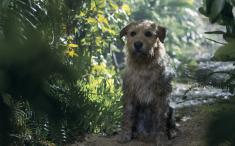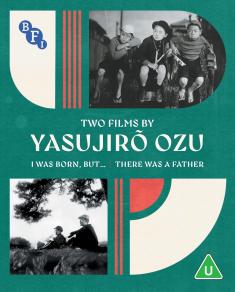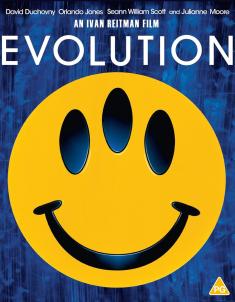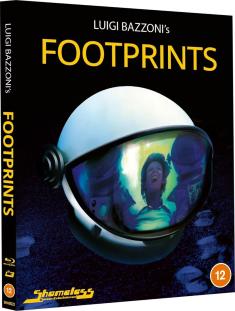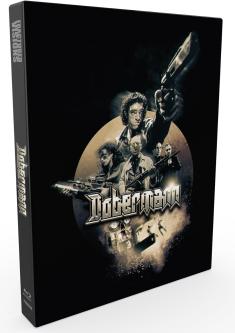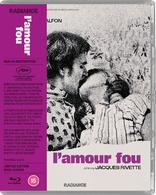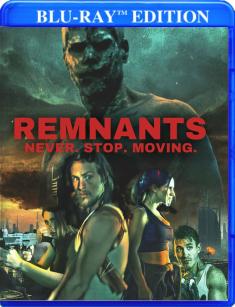Black Narcissus
Overview -This explosive work about the conflict between the spirit and the flesh is the epitome of the sensuous style of filmmakers Michael Powell and Emeric Pressburger. A group of nuns—played by some of Britain’s best actresses, including Deborah Kerr, Flora Robson, and Jean Simmons—struggles to establish a convent in the snowcapped Himalayas; isolation, extreme weather, altitude, and culture clashes all conspire to drive the well-intentioned missionaries mad. A darkly grand film that won Oscars for its set design and for its cinematography by Jack Cardiff, Black Narcissus is one of the greatest achievements by two of cinema’s true visionaries.
Storyline: Our Reviewer's Take

Based on the novel by Rumer Godden, 'Black Narcissus' stirred a good amount of controversy at the time of its theatrical release due to its subject matter. In a well-known and often repeated quote, director Michael Powell has noted the haunting psychodrama as the most erotic film of his career, where every frame and image is full of passion and eroticism. Except for one thing. We don't ever see anything on screen that could be described as sexually explicit or titillating. Furthermore, we never witness a single frame that would be remotely construed as steamy or fervently romantic, not even an open-mouth kiss. We barely catch a glimpse of a young couple touching hands in a flashback sequence. In fact, what we do see is characters fighting with their passions and laboring to deny their intimate desires.
It is this aspect of the story that defines the crux of 'Black Narcissus.' Much of the heated passions and tension are never in plain sight or located in the apparent and visible. Instead, we have to look beyond the simple, immediate conversations and actions of the characters and their environment. The filmmakers openly welcome viewers to interpret the dealings of a group of Anglican nuns with good intentions, surrounded by a beautiful, somewhat primitive land they ultimately fail to understand. The whole of 'Narcissus' relies on suggestion rather than the direct. It is, as Powell declares, a highly sensual picture where the backdrop plays a significant role in the lives of its leads, a remarkable and exquisite example of mise en scène.
With Sister Clodagh (Deborah Kerr) in charge of establishing a new convent in a remote Himalayan village, five nuns are tasked with setting up a functioning hospital and converting the locals through proper education and farming. Things start reasonably well, especially with the help of a cynical British agent, Mr. Dean (David Farrar), who doesn't have much faith in the women's ability to adapt in such a distant, exotic culture. In time, it appears Mr. Dean's intuition might actually prove accurate as each sister begins to show difficulty in self-restraint and forbearance, a long-established attribute of their order. As the narrative progresses, we sense something strange about the location and its atmosphere. Ironically, as part of their conversion effort, they are to transform the run-down palace built for a former rajah's imperial harem into a place of worship.
With each passing day, the nuns find themselves slowly lead astray by the unfamiliar surroundings, which is probably made worse by the seventeen-year-old Kanchi (Jean Simmons) hungering for a husband. Gradually, their pious, saintly lifestyle crumbles, and they wrestle to maintain — even cloister — some semblance of the ideals represented by their white habits. Their efforts to control the physical, material world around them are put into equal measure with their traditions of temperance and a contemplative life of meditation. Sister Honey (Jenny Laird) disobeys the medical advice of an elder, which leads to fatal consequences, and rather than growing vegetables as assigned, Sister Philippa (Flora Robinson) plants a large variety of flowers. While Sister Clodagh is visited by memories of her former life, Sister Ruth (Kathleen Byron) suddenly turns pathological, bursting with an intensely carnal rage.
'Black Narcissus' is the result of the brilliant writing/directing cooperation of Emeric Pressburger and Michael Powell, who later gained notoriety for another exceptional, skillfully-directed film, 'Peeping Tom.' Their collaborative — often experimental — efforts also led to such beautiful productions as 'Stairway to Heaven' and 'Red Shoes.' With 'Narcissus,' their sixth production together, the men masterfully direct a portrayal of repressed desires that erupts in an unforgettable climax of frustrations. The women are confronted with an internal struggle to bend the eros, their libidos, their natural, baser instincts for self-preservation, to their material worldview of morality. They refuse to succumb to the things they swore to deny as part of their spiritual vows. In doing this, the film also makes a clear, condemning insinuation on British rule in the Asian countries. Instead of the women influencing and dominating a foreign land with their celibate ways, they are overcome and altered by the sensuous and sensual nature of a culture full of color and life.
Of course, no discussion of 'Narcissus' is complete without also mentioning the opulent three-strip Technicolor photography of Jack Cardiff, a spectacular display which makes lavish and expert use of the matte landscape paintings. Since the background and surroundings serve as important, affecting elements of the narrative, Cardiff makes them appreciably noticeable, invigorating the plot with a series of gorgeous images. Each frame could almost function as individual stills with their own passionate stories to tell. In the end, the incredible cinematography plays an equally vital role in elevating this remarkable film from The Archers, a filmmaking partnership which has influenced the likes of Martin Scorsese, George A. Romero, Akira Kurosawa, Wes Anderson, Francis Ford Coppola, Derek Jarman, Ridley Scott, Steven Spielberg, Danny Boyle, and many, many more.
The Blu-ray: Vital Disc Stats
This Blu-ray edition of 'Black Narcissus' comes courtesy of The Criterion Collection (spine #93) on a Region A locked BD50 disc and housed in their standard clear keepcase. Accompanying the disc is a 22-page booklet with color pictures of the film and features an excellent essay entitled "Empire of the Senses" by Kent Jones. There are no trailers or promos before being greeted by the distributor's normal menu options.
Video Review

According to the booklet included in the Blu-ray package, this high-def transfer of 'Black Narcissus' was struck from a "newly manufactured 35mm interpositive" while supervised by cinematographer Jack Cardiff and Thelma Schoonmaker Powell, Michael Powell's widow. Criterion delivers excellent picture quality for this Blu-ray edition of an extraordinary film. Retaining its original 1.33:1 aspect ratio, the 1080p/AVC MPEG-4 encode is a marvelous, near-reference improvement that bests the previous Criterion DVD by leaps and bounds. This Blu-ray really brings the collaborative efforts of Powell and Pressburger to a new glory, one which cineastes will surely love and marvel at for many years as the best video presentation of a British classic.
Aside from some unavoidable instances of softness and negligible, age-related chroma issues, 'Black Narcissus' looks absolutely gorgeous and sparkling, a beautiful demonstration of what can be accomplished with the HD format. The broad palette, which is a result of the three-strip Technicolor process used, is one of the transfer's most attractive features, accurately displaying Cardiff's sumptuous photography. Primaries are lush and dazzling while secondary hues are full-bodied with splendid variation. A very fine layer of grain maintains the classic's cinematic quality, and contrast is pitch-perfect, giving the crisp image an appreciable depth of field. Skin tones look wonderful and authentic for each character from beginning to end. Black levels are also a very nice surprise, appearing accurate for most of the presentation and luxuriant in other areas, and delineation remains strong in the shadows.
Furthermore, this new transfer is the sharpest the film has ever looked. Architectural details are regularly astounding, while fine texture in the oriental clothing and facial complexions are beautifully revealing, often jaw-dropping. In the end, Criterion delivers a remarkable high-definition presentation of a classic film with the sort of care and attention it truly deserves. This is one fans will surely love and appreciate as if they were watching it for the first time.
Audio Review

For the audio, the engineers at Criterion made only slight adjustments to the original sound recordings of 'Black Narcissus,' digitally cleaning the optical tracks of any excessive noise and hum. But in spite of their best efforts, this uncompressed monaural soundtrack feels a bit wanting, with some generally lackluster moments amidst its better parts. I'm sure this has much more to do with the age of the source and not necessarily a weakness in the codec. The most noticeable aspect is with a dynamic range that often comes across as confined and narrow. Especially towards the end, Brian Easdale's beautiful score reaches for some higher frequencies which tend to suddenly taper and clip. While distortion is not a problem, the track does have noticeably minor frequency issues.
Nonetheless, this lossless mix remains attractive for a majority of the film's runtime. Being a dialogue-driven film, the conversations between characters are lucid and intelligible, providing the emotional inflections of actors splendidly. The one-channel presentation delivers wonderful clarity detail and ambient effects in the background for a strong acoustical presence that's also engaging. For example, the narrative's pivotal moment with Sister Ruth running to Mr. Dean's cottage carries the stressful and incessant sounds of drumming from the local villagers. And the whole thing can be clearly heard beautifully during their heated exchange. Although exhibiting some minor deficiencies in the optical track, 'Black Narcissus,' by and large, sounds quite good on Blu-ray.
One last thing of note: I also noticed the volume was significantly lower than usual, so listeners will likely have to raise the decibel level above their normal setting to appreciate this hi-rez soundtrack.
Special Features

'Black Narcissus' arrives with a strong collection of special features ported from previous editions, but mirroring its standard definition counterpart. Long-time fans will appreciate the material, while others might find some of the featurettes overlapping one another.
- Audio Commentary — Things kick off with a commentary track made for the 1988 laserdisc release, recorded only two years prior to Michael Powell's passing. The famed director is joined by fellow filmmaker and friend Martin Scorsese for a richly informative and satisfying conversation. Scorsese makes no secret of his complete adoration and enthusiasm for the film, while Powell offers wonderful notes on the production and artistic decisions. Although there are several moments of silence in the exchange, the wealth of knowledge shared is worthwhile for any fan.
- Bertrand Tavernier Introduction (HD, 9 min) — Originally recorded for the 2006 DVD release, the French director, who also happens to be an admirer of Powell-Pressburger films, talks about the visual style and other aspects of 'Black Narcissus.'
- Featurette: "The Audacious Adventurer" (HD, 17 min) — Another piece from the same DVD release mentioned above, Bertrand returns to share some valuable history on the postwar movie industry of Great Britain. He also offers stories on his friendship with Powell along with some great insights on the film and the production.
- Featurette: "Profile of Black Narcissus" (HD, 25 min) — This short making-of doc was originally recorded in 2000 and features interviews with actress Kathleen Byron, cinematographer Jack Cardiff, camera operator Christopher Challis, assistant editor Noreen Ackland and film historian Ian Christie. With footage spliced in between, talks range from the working relationship of Powell and Pressburger, theatrical response, on-set anecdotes and the film's lasting impression.
- Featurette: "Painting with Light" (HD, 27 min) — This last segment is a closer look at distinguished director of photography Jack Cardiff and shooting history of 'Black Narcissus.' With Martin Scorsese and Kathleen Byron also pitching in with their thoughts, the doc is quite fascinating with comments on the difficulties of working with three-strip Technicolor film and Cardiff's influences.
- Trailer (HD) — The original theatrical preview rounds out the package.
Final Thoughts

'Black Narcissus' is the sixth collaborative production of Michael Powell and Emeric Pressburger, with sumptuous color photography by Jack Cardiff. The highly-stylized and sensually suggestive motion picture about a group of nuns confronted by their devotion to repressing their deeper desires displays some of the most influential filmmaking where the background becomes a character of its own. The picture quality of this Blu-ray edition from Criterion is a gorgeous display that really brings Cardiff's cinematography to life. The audio comes with some minor drawbacks which are likely inherent to the source, but the attractive assortment of supplements is a great feature to the overall package. This is a must-own release for fans of this beautiful film or the Powell-Pressburger collaborations. This Blu-ray comes highly recommended for those interested in classic British filmmaking.



